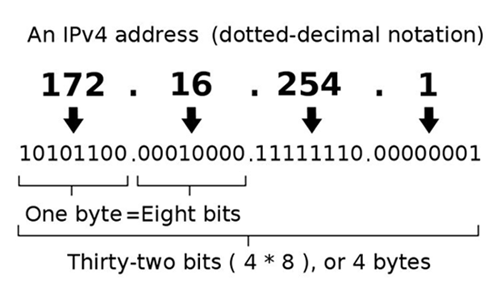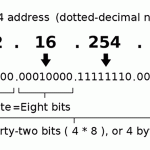IP addresses have a 32-bit address sequence which comprises of 4 numbers each ranging from 0 to 255. This provides us with with over 4 1/4 billion possible combinations. this may sound like a lot, but when you consider that each and evry client and server connected to the internet has either a fixed or dynamic IP address, that allocation is quickly used up. This does not take into account the large number of IP’s that are reserved for special purposes.
The original TCP/IP protocol was never meant to be applied over an ever expanding global network, which means that the last 5 blocks of IP addresses were assigned in Feburaray 2011. This means that we have officially ran out of IP addresses!
To resolve this major issue required a new protocol, which is coming online soon. The new protocol is called IPv6 and is 128-bit addresseing system which has enough capacity so that every person on the planet could now have several billion uniue addresses. The majority of operating software support the new IPv6 which includes Windows XP, Vista and windows 7, Mac OS X and Linux varients and most server operating software. This just leaves the World Wide Web.
The job has been left upto web hosting companies, ISP’s and the telecoms industry to move the internet to IPv6 and that job has already been taken up with big companies like Google, facebook and Yahoo having already conducted tests.
So you may be asking, do i need to do anything? Well, no. It will all just happen Chances are that you will not even notice. Your internet provider will eventually sort out everything regarding the new protocol at their end. Your sites will keep on working, broadband connection will stay up and everything will continue as normal, that is until the next big scare on the net!


